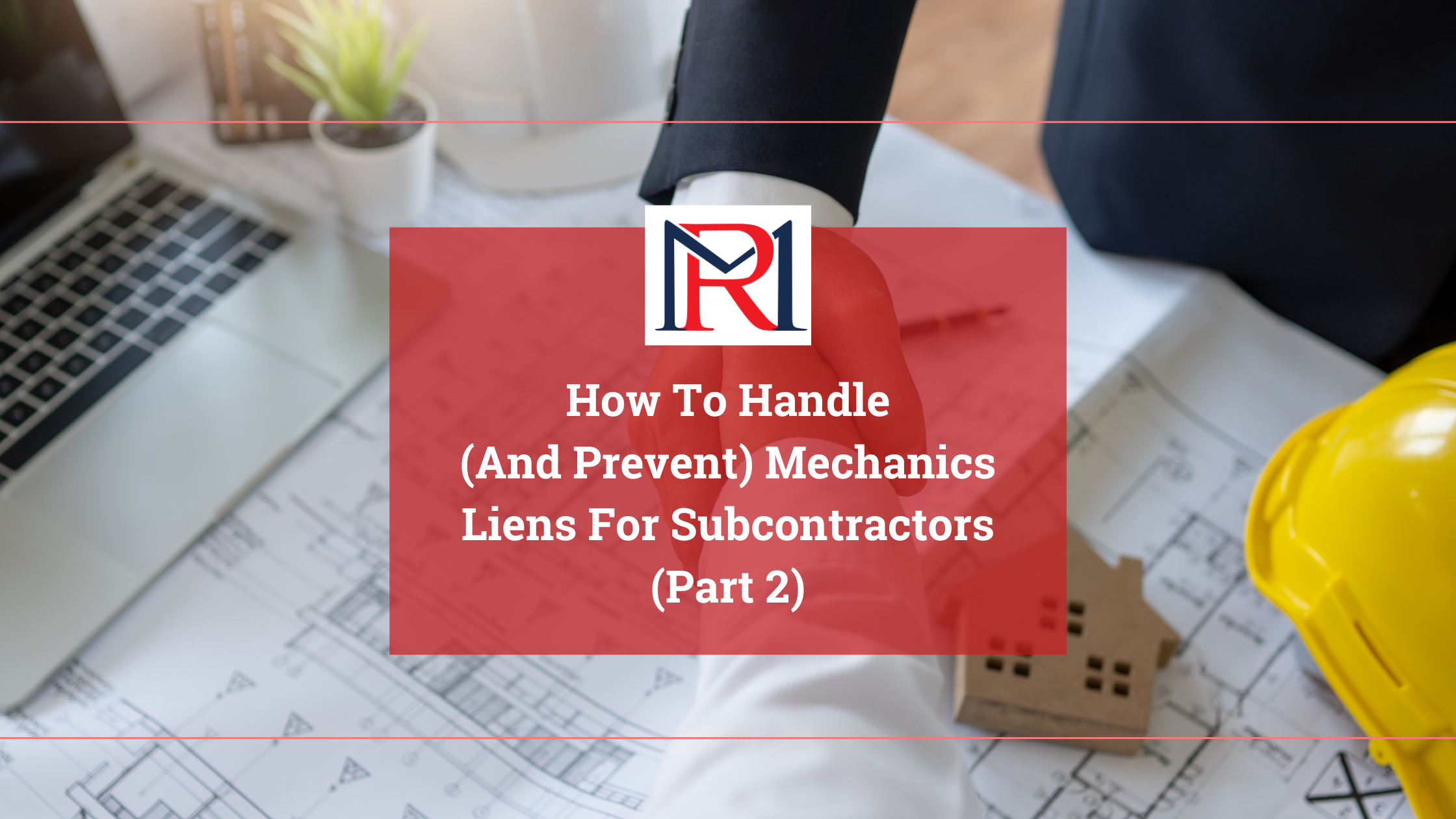How To Handle (And Prevent) Mechanics Liens For Subcontractors (Part 2)
March 13, 2024 | Uncategorized

Dealing with mechanics’ liens and payment disputes can be challenging in the construction industry. Subcontractors, in particular, must understand lien laws and how to enforce them effectively. We wanted to give you some insights into managing these issues. A basic understanding of liens helps ensure subcontractors are paid fairly for their work, and they will know how to deal with claims that state the work they provided violated the original agreement and doesn’t warrant payment.
Mechanic’s Lien & Bond Claim Laws
Mechanic’s lien and bond claim laws help subcontractors get paid. A mechanic’s lien is a legal claim against a property. It exists so the contractors and suppliers can be paid for their work. You should speak with legal counsel about this, but to initiate the process, you must file a claim for a lien within a specific timeframe for it to be enforceable. If this deadline is missed, the claim may be invalid. To be prepared for this possibility, subcontractors should always document their work, deliveries, and communications to support their claims in case disputes arise. They can turn these documents over to their attorney when they want to file a lien.
Bond claims are similar but are often connected to public projects where liens on the property are not possible. Here, a subcontractor files a claim against the bond that the general contractor must hold. Understanding the specific requirements of your state’s mechanic’s lien statute and bond claim law is the first step in protecting your ability to receive payment in the wake of someone refusing to do so. Be prepared by keeping track of all project-related expenses and maintain open lines of communication with the general contractor and project owners.
What Payment Disputes Look Like
When a payment dispute arises, take immediate action—even if it is just reaching out to an attorney for guidance. The first step toward resolution usually involves a letter demanding payment, clearly stating the owed amount and warning of potential legal action. This letter can effectively allow subcontractors to express their intent to pursue legal remedies if necessary. Usually, your attorney—with a background in construction law—will draft and send this letter. They will ensure it complies with all legal requirements, deadlines, and your overall legal strategy.
In cases of defective construction claims, the situation becomes more complex. Claims may arise stemming from whether a defect is present. Others may have to defend themselves against these claims. Understanding the relevant laws and contractual duties to determine fault and liability is essential. This involves carefully reviewing contracts, work quality, and whether the work was completed per the project’s specifications. Determining liability in construction defects requires a thorough understanding of legal and construction standards. Subcontractors should consider conducting regular quality control checks and maintaining comprehensive records of the construction process to protect themselves from baseless defect claims.
Rodriguez-McCloskey PLLC: Your Legal Partner
Subcontractors must proactively understand and apply mechanic’s lien statutes, bond claim laws, and strategies for addressing payment disputes and defective construction claims. By being informed and prepared, you can safeguard your financial interests and navigate these challenges effectively.For specific questions and concerns about handling mechanics’ liens and construction disputes, schedule a consultation with Rodriguez-McCloskey PLLC. We can provide legal support and advice tailored to your situation. Our experienced team is here to help you protect your rights and ensure fair compensation for your valuable work in the construction industry. Don’t hesitate to reach out; we’re ready to assist you.
